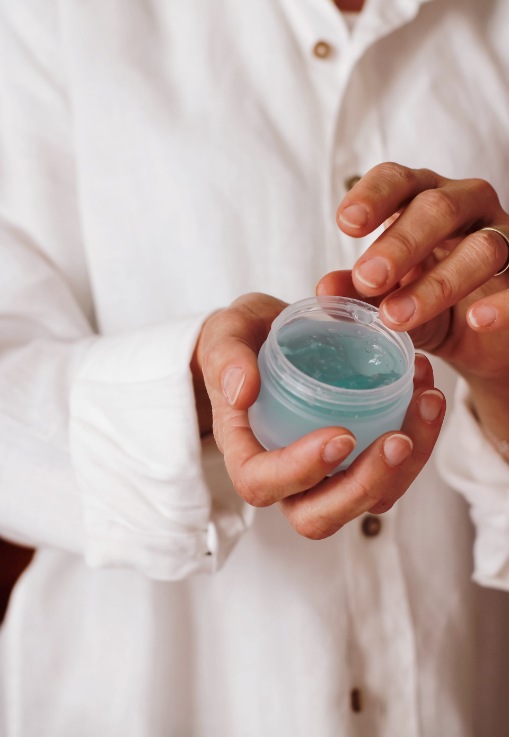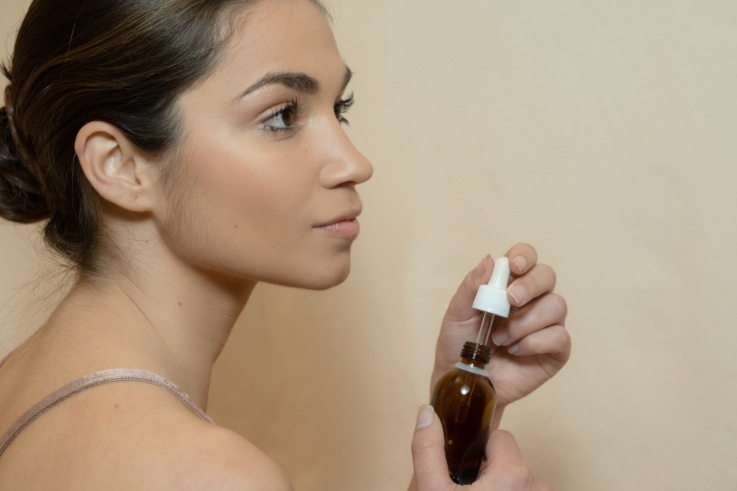There may be hundreds of ingredients out there that are capable of treating wrinkles, but there are a handful of classics that people keep returning to time and time again, mainly because of how they’ve been proven to be more effective than most other anti-aging ingredients on the market.
The two that we’re going to be discussing today are retinol and hyaluronic acid. How exactly does each one work and which should you pick if you need an anti-wrinkle cream that’ll banish those creases as quickly as possible? Read on – we’re about to explain!
Contents
- Retinol vs Hyaluronic Acid: What’s the Difference Between Retinol and Hyaluronic Acid? Is Retinol the Same as Hyaluronic Acid? Is Hyaluronic Acid a Retinol?
- Should I Use Retinol or Hyaluronic Acid? Is Retinol Better Than Hyaluronic Acid for Wrinkles?
- Should You Use Retinol or Hyaluronic Acid First?
- FAQ
- Q: Can you use retinol and hyaluronic acid together?
- Q: Is hyaluronic acid good for deep wrinkles?
- Q: Do I need both retinol and hyaluronic acid?
- Q: What is the difference between retinol and hydraulic acid?
- Q: Retinol vs collagen vs hyaluronic acid – which is the best serum ingredient for wrinkles?
- Q: Can I use hyaluronic acid with retinol?
- Q: Hydrochloric acid vs retinol – which works better for wrinkles?
- Q: Hexinol vs retinol – which one should I use for wrinkles?
- Conclusion: So, Which is Better for Wrinkles; Hyaluronic Acid or Retinol?
Retinol vs Hyaluronic Acid: What’s the Difference Between Retinol and Hyaluronic Acid? Is Retinol the Same as Hyaluronic Acid? Is Hyaluronic Acid a Retinol?

Let’s start by making one thing clear; retinol and hyaluronic acid are two completely different ingredients.
Retinol is a type of retinoid, which is a group of ingredients that all come from vitamin A.
It’s one of the most potent forms of vitamin A that you can purchase over the counter, and multiple studies have confirmed its ability to reduce fine lines and wrinkles while also treating hyperpigmentation, roughness, and dullness [1].
As you can see, it’s quite a multi-tasker, but it does have a downside. Due to its potency, retinol can sometimes irritate the skin.
Fortunately, it’s available in various concentrations, making it easy to find one that your skin type will tolerate.
Next, we have hyaluronic acid, which is classed as a humectant.
Humectants are ingredients with moisture-binding properties, making them great for hydrating and moisturizing the skin.
Studies show that hyaluronic acid is a superstar at increasing skin moisture levels [2], which gives the complexion plumper, smoother, and brighter finish.
Should I Use Retinol or Hyaluronic Acid? Is Retinol Better Than Hyaluronic Acid for Wrinkles?

So, if you’re trying to treat wrinkles, should you be using retinol or hyaluronic acid?
The good news is that you don’t have to choose. Since both ingredients do very different things, it’s safe to use them in conjunction with each other.
In fact, use them together and they’ll support how each other functions, making the results that you experience even more impressive.
That said, if you still only wanted to use one, then the ingredient that you pick should depend on your skin type.
Those with sensitive, dry, or dehydrated skin would be better with hyaluronic acid. It may not produce wrinkle-busting results as quickly as retinol, but it’ll be great for quenching your skin’s thirst.
Those with oily or combination skin should go with retinol. Not only will it help to combat the visible signs of aging, but it’ll also keep your pores clear and breakout-free.
However, again, let us stress that no matter your skin type, retinol, and hyaluronic acid really do play well together.
So, whenever possible, try to use both ingredients in your skincare routine.
Should You Use Retinol or Hyaluronic Acid First?
Now that you’re ready to invest in both retinol and hyaluronic acid, which one comes first in your routine?

The answer depends on the type of products that you’re using. Serums should always be applied before creams, no matter the ingredients that they contain.
So, whether you have a retinol serum and a hyaluronic acid cream, or the other way around, apply your serums first and then lock this in with a moisturizer. This order ensures that your skin will be able to soak up the full benefits of both ingredients.
Of course, to make things simpler, you could always look for a product that contains both retinol and hyaluronic acid in the same formula!
FAQ
Q: Can you use retinol and hyaluronic acid together?
Yes, retinol and hyaluronic acid work very well when used together.
Q: Is hyaluronic acid good for deep wrinkles?
Hyaluronic acid will help with deep wrinkles, but its effects won’t be as noticeable as if you were to combine it with other anti-aging ingredients.
Q: Do I need both retinol and hyaluronic acid?
While you don’t need both retinol and hyaluronic acid, using both will be very beneficial for your skin.
Q: What is the difference between retinol and hydraulic acid?
Retinol is a retinoid, meaning a form of vitamin A, whereas hyaluronic acid is a humectant and not a vitamin.
Q: Retinol vs collagen vs hyaluronic acid – which is the best serum ingredient for wrinkles?
Retinol is the best out of the three for wrinkles, but it’s safe to use retinol with both collagen and hyaluronic acid if you want even better results.
Q: Can I use hyaluronic acid with retinol?
Yes, hyaluronic acid can be used with retinol.
Q: Hydrochloric acid vs retinol – which works better for wrinkles?
Retinol is better for wrinkles.
Q: Hexinol vs retinol – which one should I use for wrinkles?
Both are good anti-aging ingredients, but retinol has more studies behind it to back up its efficacy.
Conclusion: So, Which is Better for Wrinkles; Hyaluronic Acid or Retinol?
When it comes down to it, both retinol and hyaluronic acid are worthwhile additions to your anti-aging skincare routine. While you could choose between one or the other, you’ll experience the best results if you combine them together, so that they can each tackle the skin aging process in their own unique ways.
References
[1] https://www.ncbi.nlm.nih.gov/pmc/articles/PMC2699641/
[2] https://www.ncbi.nlm.nih.gov/pmc/articles/PMC3583886/